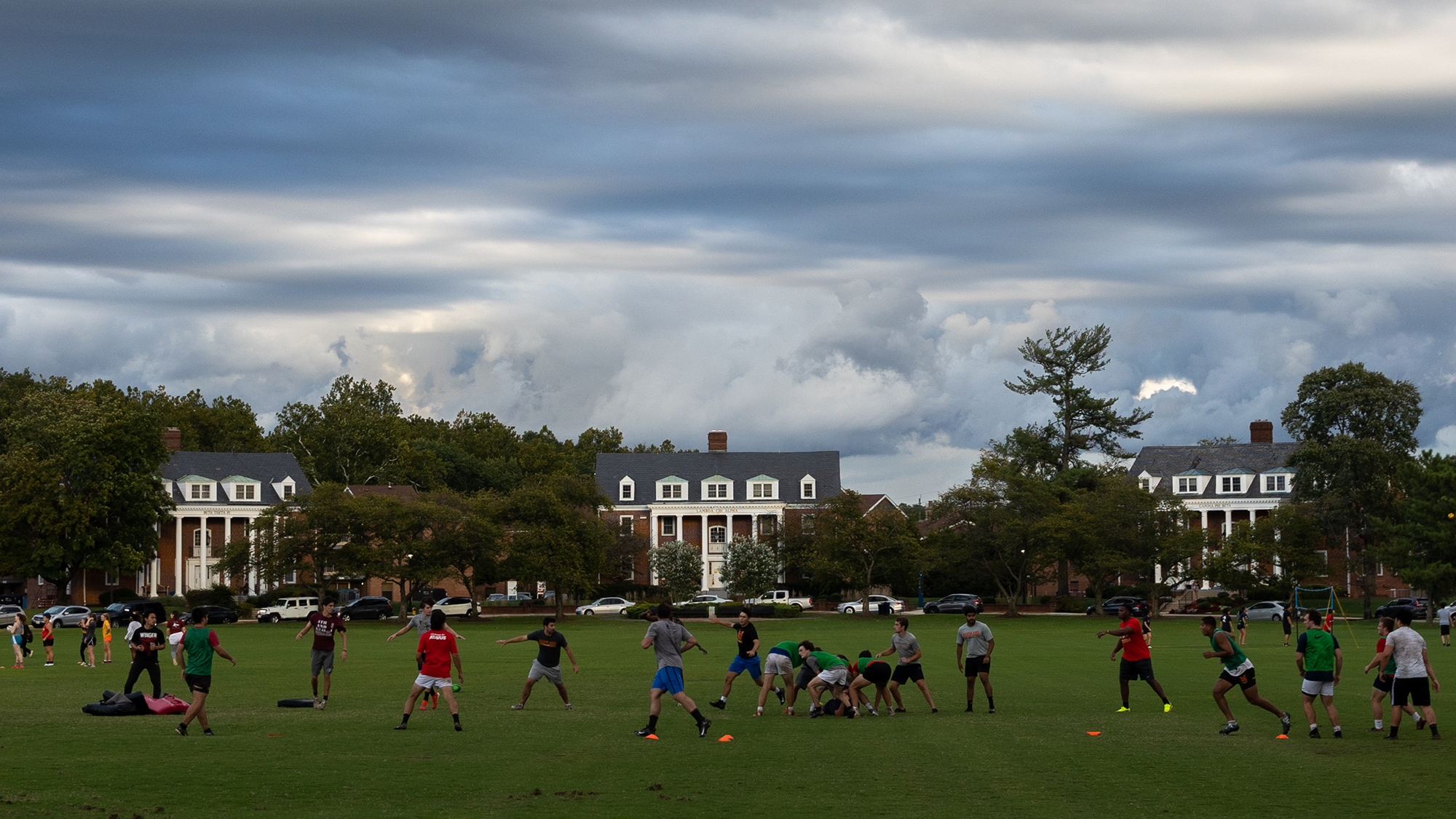Para leer este artículo en español, haga clic aquí.
Content Warning: This article discusses sexual assault.
Sexual assault allegations surfaced this month in the University of Maryland Greek life community, renewing calls from chapters and campus organizations for a greater vigilance against rape culture within Greek life.
The allegations this month involve the Pi Kappa Alpha fraternity. These allegations became public after Preventing Sexual Assault, a student-run group at this university supporting survivors of sexual assault, released a letter to the Department of Fraternity and Sorority Life on its Instagram. The letter condemned the “bare-minimum” action taken in response to sexual assault on campus, especially in Greek life.
In an Instagram post on Thursday, the university’s Department of Fraternity and Sorority Life said they met with the co-chairs of PSA “to discuss the perceived lack of accountability within Fraternity and Sorority Life.” DFSL does not investigate or adjudicate sexual misconduct cases, but they do inform campus departments of any allegations and “help them hold chapters accountable,” the Instagram post read.
One incident occurred last fall, and the student involved resigned from the fraternity after the incident became public, said Ashley Wells, the Panhellenic Association’s vice president of accountability.
When reached for comment, Pi Kappa Alpha President Micah Kranzel referred to a post on the fraternity’s Instagram, posted two days after PSA’s statement. The post states the chapter takes all reports of sexual misconduct seriously and is opposed to all behavior that doesn’t treat individuals with “dignity and respect.”
[UMD’s IFC responded to harassment at Black History Month event. Some say it wasn’t enough.]
But the university community has called for greater accountability for offenders of sexual assault and their chapters — something they say was lacking in the situation involving Pi Kappa Alpha.
The Interfraternity Council, which governs more than 20 social fraternities on the campus, is partnering with the Student Government Association and PSA to implement programs, training and workshops for IFC members in an attempt to reform Greek life.
Josie Urrea, the SGA’s director of sexual misconduct prevention, said the SGA is trying to help mediate a relationship between PSA and IFC. IFC reached out to SGA, she said, saying they wanted to help reform their image.
“We wanted to not only foster a relationship with PSA but also get IFC involved in more opportunities, such as our Red Zone events and stuff like that,” the junior Chinese and public policy major said.
IFC president Mike DiDonato declined to comment the day after PSA’s statement, saying the situation was a student conduct issue.
The allegations have “raised a really big question of how do fraternities and sororities serve our campus,” Wells from PHA said. In the coming year, she added, there need to be more conversations among fraternities about true ways to prevent sexual misconduct in Greek life.
“There needs to be a larger focus for fraternities on not, ‘How do we support sexual assault victims?’ but, ‘How are we not creating sexual assault victims, how are we teaching our new members and our established members how to properly approach situations like the one that the victim was in?’” the senior government and politics major said.
Many PHA sororities have distanced themselves from Pi Kappa Alpha since the allegations became public.
This university’s chapter of the Alpha Xi Delta sorority, for example, canceled any social events planned with Pi Kappa Alpha, social chair Lilly Decelles said.
“It just really affected our whole chapter and how we interact with them,” said Decelles, a junior finance and marketing major.
The distancing from Pi Kappa Alpha goes beyond Decelles’ sorority.
“I don’t think any organizations are maintaining the same relationship that they may have had with PIKE,” Wells said.
[UMD’s PHA has not been able to sanction chapters for COVID-19 violations]
Some IFC fraternities, including Delta Sigma Phi, Tau Epsilon Phi and Phi Sigma Kappa, issued their own statements on social media, emphasizing the importance of supporting survivors of sexual misconduct and the need for Greek life to do better in handling sexual misconduct incidents.
Spencer Lockhart, the president of Delta Sigma Phi, said his fraternity doesn’t want to be part of the problem and stay silent about these issues.
“You can’t fix Greek life without Greek life wanting to fix itself,” the senior kinesiology major said.
Richie Hafif, the outgoing risk manager of Tau Epsilon Phi and a junior public policy major, said his fraternity wanted to end the silence of such a serious topic that Greek life often treats as taboo.
“If you’re going to stand against something, and you’re going to firmly believe in that stance, you shouldn’t be afraid to speak about it,” Hafif said. “You should actively go and speak about it because stuff like that really just can’t fly.”
Senior staff writer Eric Neugeboren contributed to this report.
The University of Maryland’s CARE to Stop Violence crisis line can be reached at (301) 741-3442. The university’s counseling center can be reached at (301) 314-7651. Individuals can file sexual misconduct or discrimination reports through the university’s Office of Civil Rights and Sexual Misconduct here.



